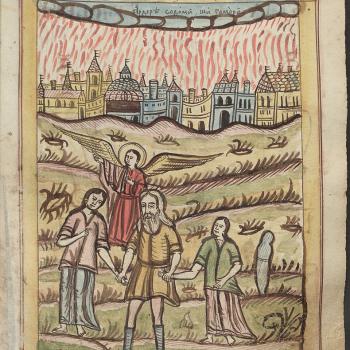
Fasting can be an invaluable tool. It helps us learn how to discipline ourselves. But, it should not be made into something it is not. It is only a tool. We must not think that if someone fasts they are holy. Someone can fast and still commit all kinds of great evil. We can fast and still be murderers. We can fast and still show cruelty to the poor and needy. We can fast while making a mockery out of Christian charity. Fasting is meant to help us reform our lives, but for it to do so, we must have proper intentions connected with our fast. We must use it as a tool to help us truly seek after the greater good. We should use fasting as a tool for self-inspection, helping us come to know ourselves better. The way we understand how we deal with hunger and its impulses should be able to help us discern how to overcome our inordinate passions. It is not the fast, therefore, which is important, but what we do with it, which is why Paul rightfully said: “Food will not commend us to God. We are no worse off if we do not eat, and no better off if we do. Only take care lest this liberty of yours somehow become a stumbling block to the weak” (1 Cor. 8:8-9 RSV).
We should care for those in need. When they are hungry, we should offer them food. When they need a place to stay, we should help them find one. Thus, we must avoid gluttony, not just because we grow needlessly fat and unhealthy if we overeat, but because we recognize the way our overeating leads us to use more than our fair share of the food available to us, and what we take beyond our need, is directly or indirectly taken from those in extreme need. This is how we should understand all material goods. They should be distributed justly so that all can have what they need instead of having a few who find a way to possess them and control them for their own private gain. Gluttony circumvents such justice; it suggests to us that our pleasures are worth more than the livelihood of the poor; this is why gluttony is a deadly sin, because it really has us lose sight of the justice and charity which we should follow.
Fasting as a tool helps us reexamine our engagement with food, making us realize that we should be charitable towards others instead of taking as much as we want and become a stumbling block to those who are weak or in need. “Therefore, if food is a cause of my brother’s falling, I will never eat meat, lest I cause my brother to fall” (1 Cor. 8:13 RSV). In the context of the passage, Paul meant that if someone was offered meat which had been sacrificed to an idol, though there was nothing essentially wrong in doing eating it, because it might upset others who view such food as being contaminated by its association with idolatry, it is best to reject it (unless, of course, the person was in extreme need and it was the only way they could get the food they need). What is important for us is not the exact situation Paul was talking about, but the wisdom he used, the prudence he used to make his conclusion, for when we understand that, we can and should apply it in other situations. Simply put, we should avoid causing others to stumble.
If our over-consumption of food causes our brother and sisters in Christ, or indeed, brothers and sisters in humanity, to stumble, either because they suffer from hunger, or because they know people suffering from hunger and they become upset by our inordinate use of food, we should cut back on what we eat. In doing so, we show we care about others, but when we avoid doing so, we cut ourselves off from the charity we should possess. Fasting, when engaged for that purpose, can help us transform our lives, but if it is just done for some legalistic reason, without actually engaging the spirit of the fast, it does not commend us to God. Jesus reveals what causes us to find ourselves approved by God in his description of the Last Judgment: being concerned about and helping the needy and the oppressed. Fasting can help us get in that spirit, showing us what it is like to be hungry and in need, so that we can have greater compassion with those in need. If we let the spirit of charity grow in us, we will act upon it, and then, when we come face to face with God in our judgment, we will hear God say, “Well-done good and faithful servant.” If, on the other hand, we fast for the sake of the appearance of piety, and so, if we ignore the dictates of charity, we risk causing ourselves greater harm and indeed, finding ourselves not “known” by God. That is, by ignoring the needs of the people, ignoring the expectations of justice and charity, God is likewise ignored by us:
And the King will answer them, `Truly, I say to you, as you did it to one of the least of these my brethren, you did it to me.’ Then he will say to those at his left hand, `Depart from me, you cursed, into the eternal fire prepared for the devil and his angels; for I was hungry and you gave me no food, I was thirsty and you gave me no drink, I was a stranger and you did not welcome me, naked and you did not clothe me, sick and in prison and you did not visit me.’ Then they also will answer, `Lord, when did we see thee hungry or thirsty or a stranger or naked or sick or in prison, and did not minister to thee?’ Then he will answer them, `Truly, I say to you, as you did it not to one of the least of these, you did it not to me.’ And they will go away into eternal punishment, but the righteous into eternal life.” (Matt. 25:40-46 RSV).
As we come to the time of the Great Fast, let us remember its purpose. It is not to just starve ourselves. It is not to look good in front of others. It is about personal reform, learning how to develop ourselves so we end up being concerned about our neighbor and look for ways which we can truly help them. Each one of us, of course, will do so in different fashions; some have material wealth and will be able to put it to good use, but others, without such resources, will fulfill the expectations of charity by showing the poor and oppressed the love and care they need. When we do so, we are not only honoring them, but also God, for the image and likeness of God is in them, and if we don’t do so, then when we dishonor them, we dishonor God for the exact same reason. What good is it for us to become hungry and lose our soul? Let us find a hunger for holiness, and through it, develop the love and charity we should have.
Stay in touch! Like A Little Bit of Nothing on Facebook.
If you liked what you read, please consider sharing it with your friends and family!
N.B.: While I read comments to moderate them, I rarely respond to them. If I don’t respond to your comment directly, don’t assume I am unthankful for it. I appreciate it. But I want readers to feel free to ask questions, and hopefully, dialogue with each other. I have shared what I wanted to say, though some responses will get a brief reply by me, or, if I find it interesting and something I can engage fully, as the foundation for another post. I have had many posts inspired or improved upon thanks to my readers.













